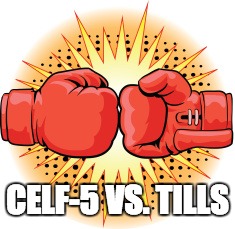 On a daily basis I receive emails and messages from concerned parents and professionals, which read along these lines: “My child/student has been diagnosed with: dyslexia, ADHD, APD etc., s/he has been receiving speech, OT, vision, biofeedback, music therapies, etc. but nothing seems to be working.”
On a daily basis I receive emails and messages from concerned parents and professionals, which read along these lines: “My child/student has been diagnosed with: dyslexia, ADHD, APD etc., s/he has been receiving speech, OT, vision, biofeedback, music therapies, etc. but nothing seems to be working.”
Up until now, I have been providing individualized responses to such queries, however, given the unnerving similarity of all the received messages, today I decided to write this post, so other individuals with similar concerns can see my response. Continue reading Help, My Child is Receiving All These Therapies But It’s NOT Helping

 I frequently see numerous posts on Facebook that ask group members, “What are your activities/goals for a particular age group (e.g., preschool, middle school, high school, etc.) or a particular disorder (e.g., Down Syndrome)? After seeing these posts appear over and over again in a variety of groups, I decided to write my own post on this topic, explaining why asking such broad questions will not result in optimal therapeutic interventions for the clients in question.
I frequently see numerous posts on Facebook that ask group members, “What are your activities/goals for a particular age group (e.g., preschool, middle school, high school, etc.) or a particular disorder (e.g., Down Syndrome)? After seeing these posts appear over and over again in a variety of groups, I decided to write my own post on this topic, explaining why asking such broad questions will not result in optimal therapeutic interventions for the clients in question. 

 Three years ago I wrote a blog post entitled: “
Three years ago I wrote a blog post entitled: “
 In my
In my  Many of my students with Developmental Language Disorders (DLD)
Many of my students with Developmental Language Disorders (DLD)  Because the children I assess, often require supplementary reading instruction services, many parents frequently ask me how they can best determine if a reading specialist has the right experience to help their child learn how to read. So today’s blog post describes what type of knowledge reading specialists ought to possess and what type of questions parents (and other professionals) can ask them in order to determine their approaches to treating literacy-related difficulties of struggling learners.
Because the children I assess, often require supplementary reading instruction services, many parents frequently ask me how they can best determine if a reading specialist has the right experience to help their child learn how to read. So today’s blog post describes what type of knowledge reading specialists ought to possess and what type of questions parents (and other professionals) can ask them in order to determine their approaches to treating literacy-related difficulties of struggling learners.